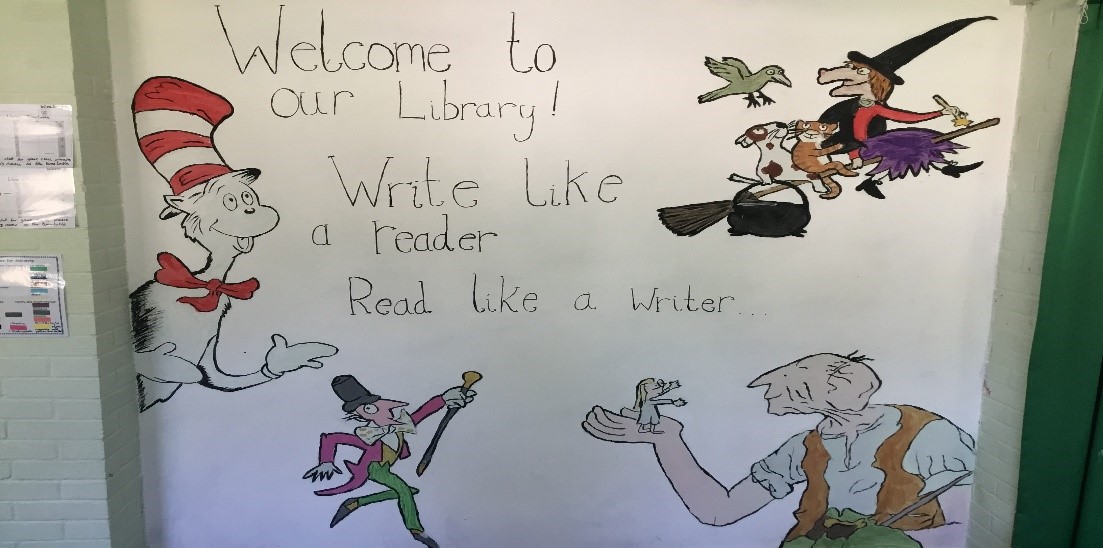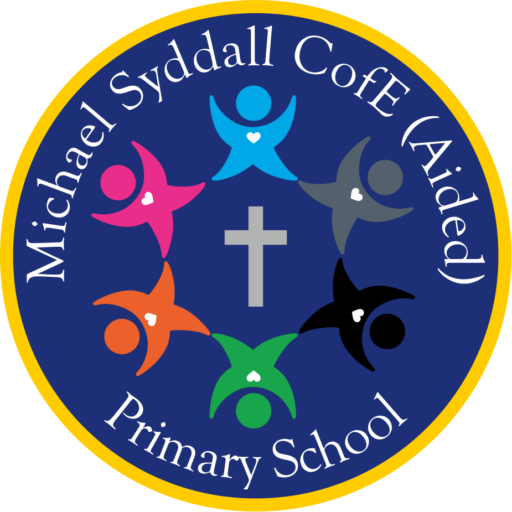Our English Ethos Statement is as follows:
We teach English in an engaging and creative way to ensure that reading and writing skills are valued and enjoyed by all. We aim to match children’s interests and provide exciting, broader experiences, which allow them to explore a range of emotions as well as develop their own character.
At our school, every child reads as a writer and writes as a reader and all skills are valued in equal measure.
Click on the image to the left to watch our video from Miss KP and Miss PJ about phonics at Michael Syddall CofE Primary School.
Phonics (reading and spelling)
At Michael Syddall, we believe that all our children can become fluent readers and writers. This is why we teach reading through Little Wandle Letters and Sounds Revised, which is a systematic and synthetic phonics programme. We start teaching phonics in Foundation Stage and follow the Little Wandle Letters and Sounds Revised progression, which ensures children build on their growing knowledge of the alphabetic code, mastering phonics to read and spell as they move through school.
As a result, all our children are able to tackle any unfamiliar words as they read. At Michael Syddall, we also model the application of the alphabetic code through phonics in shared reading and writing, both inside and outside of the phonics lesson and across the curriculum. We have a strong focus on language development for our children because we know that speaking and listening are crucial skills for reading and writing in all subjects.
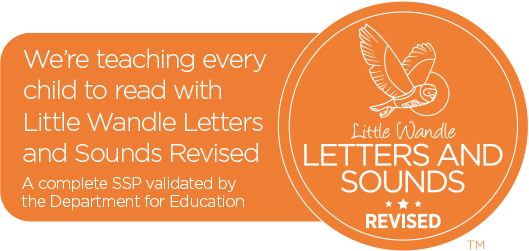
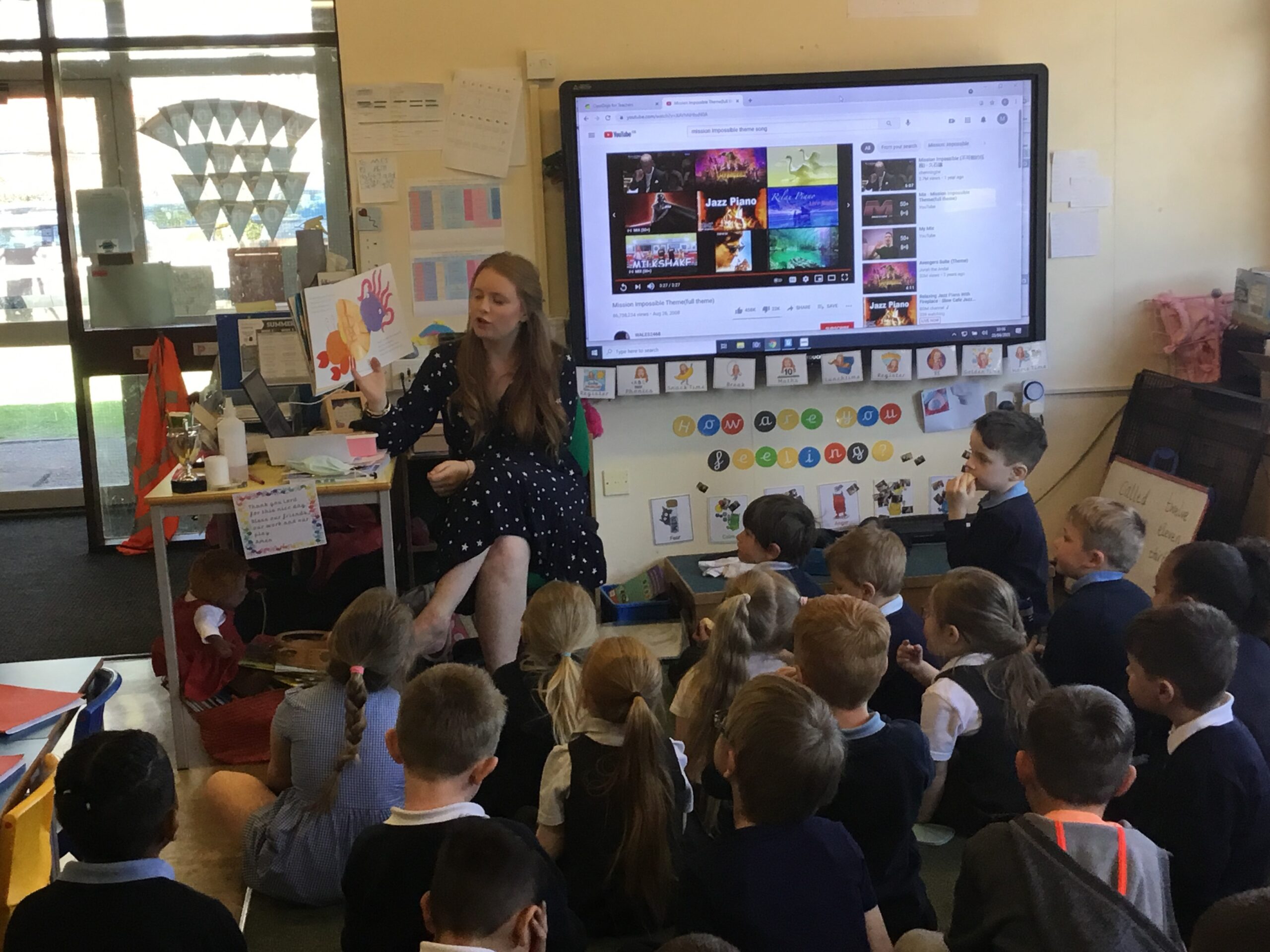
Comprehension
At Michael Syddall, we value reading as a crucial life skill. By the time children leave us, they read confidently for meaning and regularly enjoy reading for pleasure. Our readers are equipped with the tools to tackle unfamiliar vocabulary. We encourage our children to see themselves as readers for both pleasure and purpose.
Because we believe teaching every child to read is so important, we have a Reading Leader who drives the early reading programme in our school. This person is highly skilled at teaching phonics and reading, and they monitor and support our reading team, so everyone teaches with fidelity to the Little Wandle Letters and Sounds Revised programme.
Daily phonics lessons in Foundation Stage and Year 1
- We teach phonics for 30 minutes a day. In Foundation Stage, we build from 10-minute lessons, with additional daily oral blending games, to the full-length lesson as quickly as possible. Each Friday, we review the week’s teaching to help children become fluent readers.
- Children make a strong start in Foundation Stage: teaching begins in Week 2 of the Autumn term.
- We follow the Little Wandle Letters and Sounds Revised expectations of progress:
- Children in Foundation Stage are taught to read and spell words using Phase 2 and 3 GPCs, and words with adjacent consonants (Phase 4) with fluency and accuracy.
- Children in Year 1 review Phase 3 and 4 and are taught to read and spell words using Phase 5 GPCs with fluency and accuracy.
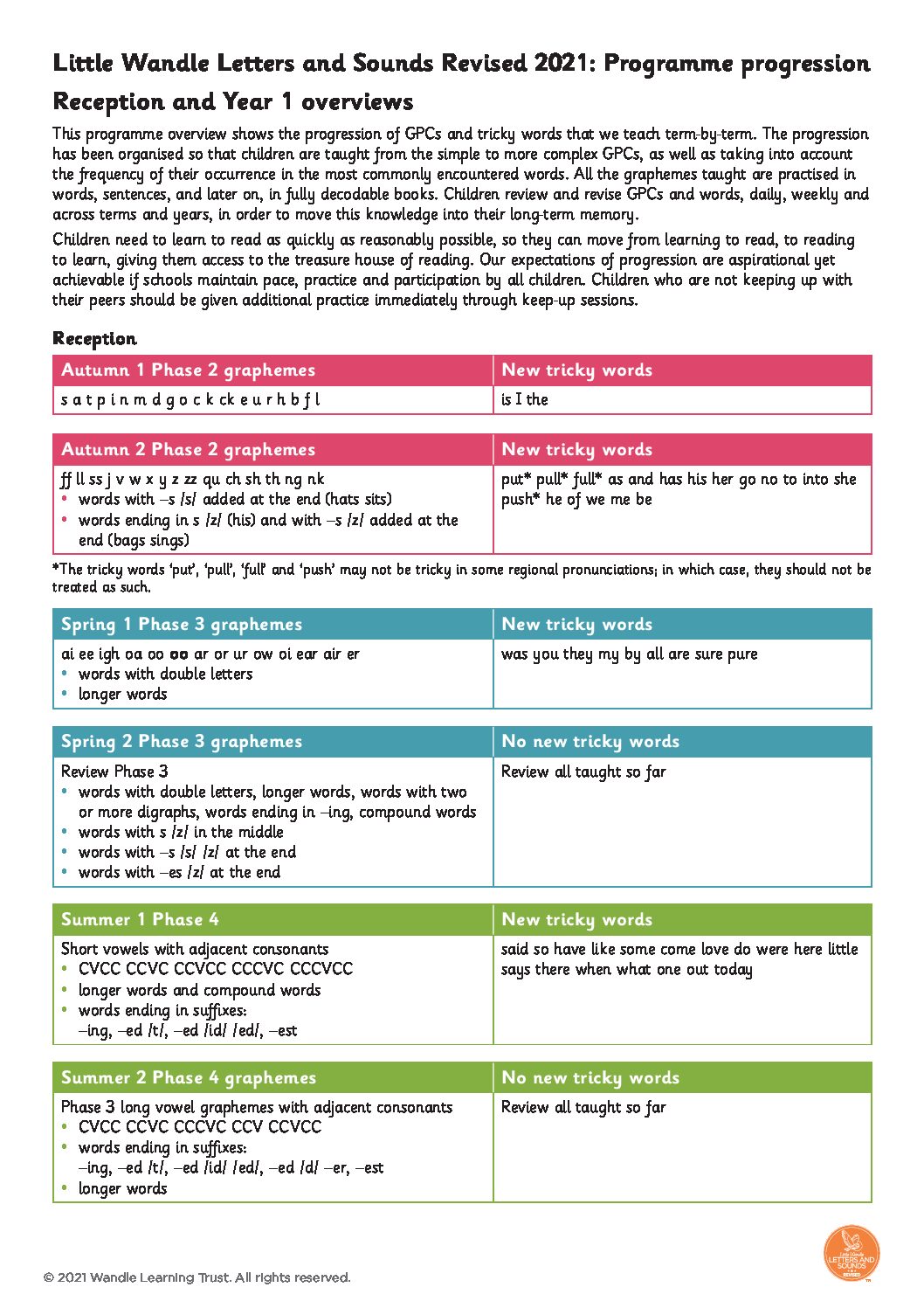
Daily Keep-up lessons ensure every child learns to read
- Any child who needs additional practice has daily Keep-up support, taught by a fully trained adult. Keep-up lessons match the structure of class teaching, and use the same procedures, resources and mantras, but in smaller steps with more repetition, so that every child secures their learning.
- We timetable daily phonics lessons for any child in Year 2 or 3 who is not fully fluent at reading or has not passed the Phonics Screening Check. These children urgently need to catch up, so the gap between themselves and their peers does not widen. We use the Little Wandle Letters and Sounds Revised assessments to identify the gaps in their phonic knowledge and teach to these using the Keep-up resources – at pace.
- If any child in Year 3 to 6 has gaps in their phonic knowledge when reading or writing, we plan phonics ‘catch-up’ lessons to address specific reading/writing gaps. These short, sharp lessons last 10 minutes and take place at least three times a week.
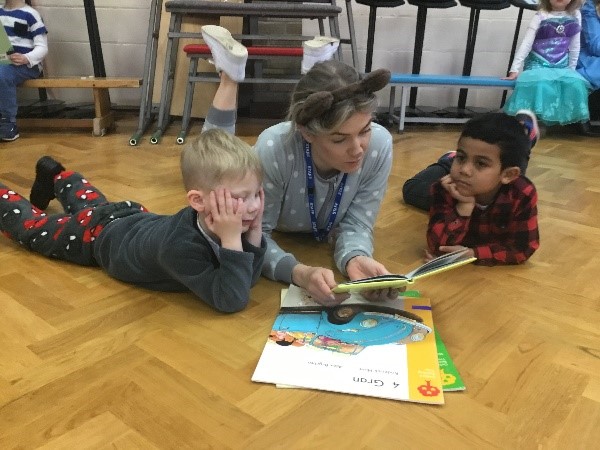
Teaching reading: Reading practice sessions three times a week
- We teach children to read through reading practice sessions three times a week. These:
- are taught by a fully trained adult to small groups of approximately six children
- use books matched to the children’s secure phonic knowledge using the Little Wandle Letters and Sounds Revised assessments and book matching grids on pages 11–20 of ‘Application of phonics to reading’
- are monitored by the class teacher, who rotates and works with each group on a regular basis.
- Each reading practice session has a clear focus, so that the demands of the session do not overload the children’s working memory. The reading practice sessions have been designed to focus on three key reading skills:
- decoding
- prosody: teaching children to read with understanding and expression
- comprehension: teaching children to understand the text.
- In Foundation Stage, these sessions start in Week 4. Children who are not yet decoding have daily additional blending practice in small groups, so that they quickly learn to blend and can begin to read books.
- In Year 2 and 3, we continue to teach reading in this way for any children who still need to practise reading with decodable books.
Home reading
- The decodable reading practice book is taken home to ensure success is shared with the family.
- Reading for pleasure books also go home for parents to share and read to children.
- We use the Little Wandle Letters and Sounds Revised parents’ resources to engage our families and share information about phonics, the benefits of sharing books, how children learn to blend and other aspects of our provision, both online and through workshops.
Additional reading support for vulnerable children
- Children in Foundation Stage and Year 1 who are receiving additional phonics Keep-up sessions read their reading practice book to an adult daily.

Ensuring consistency and pace of progress
- Every teacher in our school has been trained to teach reading, so we have the same expectations of progress. We all use the same language, routines and resources to teach children to read so that we lower children’s cognitive load.
- Weekly content grids map each element of new learning to each day, week and term for the duration of the programme.
- Lesson templates, Prompt cards and How to videos ensure teachers all have a consistent approach and structure for each lesson.
- The Reading Leader and SLT use the Audit and Prompt cards to regularly monitor and observe teaching; they use the summative data to identify children who need additional support and gaps in learning.

Reading
We teach English in an engaging and creative way to ensure that reading and writing skills are valued and enjoyed by all. We aim to match children’s interests and provide exciting, broader experiences, which allow them to explore a range of emotions as well as develop their own character.
At our school, every child reads as a writer and writes as a reader and all skills are valued in equal measure.
We are committed to teaching our pupils to become skilled readers who develop a comprehensive understanding of words, language and texts as they move through school. They learn to read and then read to learn. Through using a range of strategies, our aim is to ensure that pupils develop a love of reading so that they can read for purpose and for pleasure. We provide pupils with a range of strategies in order to do this.
Ensuring reading for pleasure
‘Reading for pleasure is the single most important indicator of a child’s success.’ (OECD 2002)
‘The will influences the skill and vice versa.’ (OECD 2010)
We value reading for pleasure highly and work hard as a school to grow our Reading for Pleasure pedagogy.
- We read to children every day. We choose these books carefully as we want children to experience a wide range of books, including books that reflect the children at Michael Syddall C of E and our local community as well as books that open windows into other worlds and cultures.
- Every classroom has an inviting book corner that encourages a love for reading. We curate these books and talk about them to entice children to read a wide range of books.
- In Foundation Stage, children have access to the reading corner every day in their ‘Play to Learn’ time and the books are continually refreshed.
- Children from Foundation Stage onwards have a home reading record. The parent/carer records comments to share with the adults in school and the adults will write in this on a regular basis to ensure communication between home and school.
- As the children progress through the school, they are encouraged to write their own comments and keep a list of the books/authors that they have read.
Spelling
Further up the school children have regular spelling lessons to teach the rules or conventions of spelling. The spelling programme is based around the National Curriculum’s spelling appendix for each year group and children learn, consolidate and extend their knowledge through a range of engaging activities.
Handwriting
In our school, we follow Penpals for Handwriting by Cambridge University Press. Even in this technological, computer-literate age, good handwriting remains fundamental to our children’s educational acheivements. Our handwriting scheme offers progression across the school and teaches children tpo develop fast, fluent and legible handwriting.
